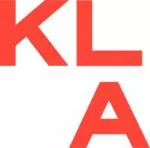On December 30th, 2023, the President Luiz Inácio Lula da Silva sanctioned Federal Law No. 14,709/2023 (Betting Law), governing exploitation of fixed-odds betting by private entities. The Betting Law originated from Bill No. 3,626/2023 and amends the provisions of Law No. 13,756/2018 establishing guidelines on fixed-odds betting.
The Betting Law establishes new rules for fixed-odds bets in Brazil. It defines the taxation applicable to companies and bettors, distribution of funds collected by the government among different branches, and introduces rules applicable to advertising in the sector. Additionally, the Law authorizes the exploitation of fixed-odds betting related to real sporting events, online cassino, and virtual online gaming events, such as e-sports competitions.
The exploitation of fixed-odds bets is subject to a grant by the Ministry of Finance and shall only be made by legal entities established and with headquarters in Brazil and which meet the qualification requirements that will be stated in Ministry of Finance's upcoming regulations.
The Betting Law defines that the regulation of the Ministry of Finance will compulsorily establish the following technical requirements for obtaining the authorization:
- Minimum value of the company's capital;
- Proof of group's knowledge and expertise in operating online games, bets, or lotteries;
- Requirements for holding and exercising positions of leadership or management;
- Appointment of an officer responsible for the relationship with the Ministry of Finance;
- Structure, operation, and appointment of an officer to handle customer service and ombudsman duties;
- Cybersecurity requirements;
- Integration with national or international organizations monitoring sports integrity; and
- Requirement to have a Brazilian holding at least 20% of the legal entity's share capital.
In addition to the above issues, the Betting Law makes it mandatory for operators to adopt measures and safeguards as follows:
- Money laundering and antiterrorism policies;
- Responsible gambling and prevention of disorders;
- Integrity of bets and prevention of fraud.
The requirements for obtaining an operating grant will also be detailed in the regulation to be issued by the Ministry of Finance. The Betting Law specifies that a minimum period of 6 months will be granted for fixed-odds betting operators to adapt to the new rules. The grant payment will be limited to R$ 30 million, considering the use of up to 3 commercial trademarks by the authorized company in its electronic channels for up to 5 years.
The Betting Law has defined that betting operators will be taxed at 12% on Gross Gaming Revenue. In addition to the 12% taxation, a surveillance fee will be charged monthly to the operators, and it will be determined based on the operator's net revenue (ranging from R$ 54,419.56 to R$ 1,944,000.00). From a bettors perspective, there will be a 15% income tax on the net amount of the awards.
For purposes of advertising, the Betting Law establishes key guidelines, such as: the requirement for the dissemination of warnings related to responsible gaming; informative actions to raise awareness among bettors and prevent pathological gambling disorders; and targeting of advertisements adult audience. Furthermore, the statute encourages operators' self-regulation regarding advertising, which is reflected in recent rules enacted by the National Advertising Self-Regulation Council (CONAR), which has recently issued so-called Annex "X" on that matter.
Betting operators without the proper authorization from the Ministry of Finance or which offer services in violation of the legislation may face penalties. Applicable fines may range from 0.1% to 20% of the company's revenue, with a maximum limit of R$ 2 billion per violation. Additionally, companies breaching applicable rules may have their operating licenses revoked.
With the aim of preventing actions that could compromise the integrity and transparency of sports betting, the Betting Law stipulates that partners and shareholders of fixed-odds betting operators cannot serve as executives or be involved in sports organizations. Additionally, betting operators will be required to report to the Ministry of Finance any suspicious event of result manipulation, which will be subject to specific regulations.
The Law also prohibits the participation in fixed-odds betting by public officials involved in the regulation, control, and oversight of the sector, minors, individuals with access to computerized lottery systems, and those who could influence game outcomes, such as coaches, athletes, and referees. This prohibition extends to the spouses, partners, and second-degree relatives of regulatory public officials, individuals with access to betting systems, and those who can influence game results.
Despite the presidential sanction, the National Congress will still review the executive's vetoes, which should be completed by March 1. Simultaneously, in the coming months, other agencies, especially the Ministry of Finance, are expected to publish additional guidelines and regulations related to sports betting and online casinos.
The content of this article is intended to provide a general guide to the subject matter. Specialist advice should be sought about your specific circumstances.



